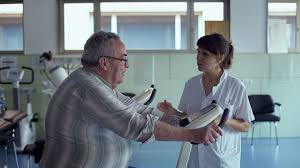Starting a career in healthcare can be a rewarding journey filled with opportunities to make a tangible difference in people’s lives. Whether you’re drawn to medical science, compassionate care, or management, the healthcare sector is vast and diverse, offering a variety of roles that suit different interests and skills.

Why Choose a Healthcare Career
Choosing a healthcare career offers both personal fulfillment and professional stability. With the constant demand for healthcare services, this industry is projected to grow significantly in the coming years. According to the U.S. Bureau of Labor Statistics, healthcare occupations are projected to grow by 13% from 2021 to 2031, much faster than the average for other industries. This means job security, competitive salaries, and a variety of career advancement opportunities.
One of the most appealing aspects of healthcare is the ability to directly impact others’ lives. Whether you are helping a patient recover, managing healthcare services, or conducting research, you are part of a larger mission to improve health and well-being.
Exploring the Best Healthcare Career Options: Jobs in Demand
The healthcare field offers a wide range of career options. Some of the most prominent categories include:
1. Medical Professions
Doctors, nurses, and surgeons are perhaps the most well-known healthcare roles. These positions generally require extensive education, including medical school and specialized training. However, they come with high salaries, the chance to save lives, and the prestige of being in a respected profession.
2. Allied Health Professions
Not everyone in healthcare needs to be a doctor or nurse. Allied health roles, such as physical therapists, radiologists, occupational therapists, and medical laboratory technicians, are equally essential in patient care and recovery. These positions may require a bachelor’s or master’s degree, along with relevant certifications.
3. Healthcare Administrative Roles
Healthcare isn’t just about clinical work. Roles like healthcare managers, medical billers, and health information technologists are crucial for keeping healthcare systems running smoothly. These positions often require a background in business or healthcare management and are ideal for those interested in the operational side of healthcare.
Educational Requirements for a Healthcare Career
A strong educational foundation is key to entering the healthcare field. Here’s a breakdown of what you’ll typically need:
1. High School Preparation for Healthcare Careers
Starting early can make a huge difference. High school students should focus on science courses like biology, chemistry, and anatomy, as well as math and English. Volunteering at local hospitals or clinics can also provide valuable exposure to the field, helping you decide if a healthcare career is right for you.
2. Bachelor’s Degree Programs in Healthcare
For many healthcare roles, a bachelor’s degree in a related field is required. Programs in nursing, health sciences, or public health are common for those pursuing clinical or administrative roles. These degrees provide foundational knowledge, helping you build the necessary skills to succeed in a healthcare career.
3. Graduate and Professional Degrees for Healthcare Careers
Certain healthcare professions, especially those in medicine, dentistry, or advanced nursing, will require graduate or professional degrees. Medical school, dental school, and nursing programs for advanced practice require years of education and hands-on training.
Skills and Qualities Needed in Healthcare
Healthcare professionals need more than just technical knowledge; they also require soft skills to interact effectively with patients, families, and colleagues. These essential skills include:
- Empathy and Communication: Being able to understand and communicate with patients is critical for providing quality care.
- Attention to Detail and Problem-Solving: Healthcare involves precision and quick decision-making, especially in high-pressure situations.
- Technical and Clinical Skills: Whether it’s administering medications, conducting tests, or analyzing data, healthcare professionals must be adept with modern medical tools and techniques.
Licensing and Certification in Healthcare
Licensing requirements vary by profession. Most medical and nursing roles require state or national licensing, which involves passing exams and completing continuing education. Similarly, certifications in specific areas, such as CPR, patient care, or lab technologies, are important for many healthcare professionals.
How to Gain Experience in Healthcare
Experience is key to developing your healthcare career. Here are some ways to get started:
- Internships and Volunteer Work: Internships at hospitals or clinics are invaluable for gaining hands-on experience. Volunteering in a healthcare setting will also expose you to different roles and help you build connections.
- Shadowing Healthcare Professionals: Spending time with doctors, nurses, or administrators can provide insight into the daily responsibilities of a healthcare career.
- Entry-Level Positions: Many healthcare fields offer entry-level roles that provide experience while allowing you to pursue further education.
Networking and Building Connections in Healthcare
Networking is crucial in healthcare. Join professional organizations, attend industry conferences, and seek out mentorship opportunities. Networking can help you learn about job openings, career trends, and other educational resources that will benefit your career.
Healthcare Job Market and Opportunities
The healthcare industry is booming, with certain roles like nursing, allied health, and healthcare administration seeing strong job growth. Many healthcare professionals also find opportunities in rural or underserved areas, where healthcare needs are often higher. Stay informed about the healthcare job market by regularly checking industry trends and using job boards like Health eCareers or Indeed to find current opportunities.
Healthcare Career Advancement
Once you’re established in your healthcare career, there are plenty of opportunities for growth. Continuing education, certifications, and specializations can increase earning potential and open doors to leadership roles. Many healthcare professionals move from clinical positions to administrative roles, offering new challenges and work environments.
Challenges in the Healthcare Industry
While healthcare offers many rewards, it also comes with challenges:
- Long Hours and High Stress: Healthcare professionals often work long shifts, including nights, weekends, and holidays, which can lead to physical and mental exhaustion.
- Emotional Toll: Healthcare workers frequently face emotional stress, particularly when dealing with sick or dying patients.
- Complex Regulations: Navigating the ever-changing healthcare regulations can be a challenge, especially in administrative roles.
Salary Expectations in Healthcare
Healthcare professionals are compensated well for their expertise. Doctors and surgeons can earn six-figure salaries, while nurses and allied health professionals typically earn lower salaries but still enjoy competitive pay and benefits.
Work-Life Balance in Healthcare
Healthcare jobs can be demanding, but it’s important to maintain a healthy work-life balance. Many healthcare organizations offer resources to help employees manage stress, including counseling, wellness programs, and flexible scheduling options.
Tips for Starting a Successful Healthcare Career
Starting your healthcare career on the right foot can make a significant difference in your future success. Consider these tips:
- Plan Your Career Path Early: The healthcare field offers a variety of options, so plan your education and experience around your long-term goals.
- Stay Up-to-Date with Healthcare Trends: The healthcare industry evolves constantly, so make sure you’re aware of the latest advancements and technologies.
- Seek Mentorship: A mentor can offer guidance, advice, and encouragement as you navigate your career path.
Conclusion
Starting a healthcare career is a fulfilling and challenging journey. With a variety of roles, educational paths, and opportunities to help others, the healthcare industry offers a rewarding career for those passionate about making a difference. Begin your journey by gaining the necessary education and experience, networking, and staying up-to-date with industry developments.
We suggest you take a look at:
- Mastering Remote Healthcare Roles: Essential Skills, Benefits, and Future Trends
- 10 Best Remote-Friendly Roles in Healthcare
- Top 6 Must-Have Skills For Nurses
- Switzerland Admissions: Move As An International Student in 2024
- Top 10 UK Graduate Programs For 2024
- Top 10 Recruitment Agencies In The United Kingdom
- Top 5 Countries That Offer Free Work Visas




3 Comments
Please my name is Libanus Dorrah, a nurse with degree in nursing and have worked for eleven years now with much experience and dedication to my job hoping to get this great opportunity thank you. Please l am in Ghana and been interested please help me
My name is Elizabeth ida mendy, a public health nurse from gambia. I have worked in different health facilities including private and public.i love my work and am dedicated to my work.i have eight years working experience.
Pingback: High-Paying Healthcare Jobs Without a Medical Degree in 2025